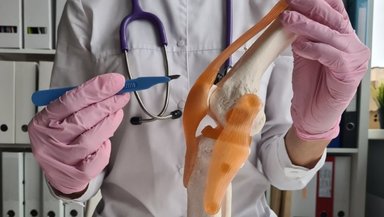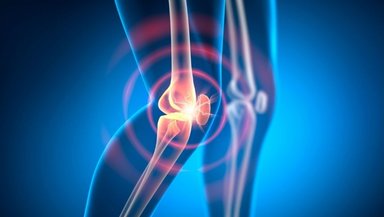Preoperative Preparation for THR: What I Wish I’d Done Before Surgery

Medicine Made Simple Summary
Preparing for Total Hip Replacement (THR) surgery is as important as the operation itself. The steps you take before surgery—physically, mentally, and practically—can make your recovery faster, smoother, and less stressful. This blog explains in clear and simple terms how to get ready, from building strength with exercises to preparing your home, managing medical tests, and planning emotional support. By the end, you’ll know exactly what to do before surgery for the best outcome.
Introduction
Many patients think of surgery as the main event, but experienced doctors and patients agree that preparation is half the battle. Going into hip replacement surgery strong, informed, and organized makes a big difference in how you feel afterward. Patients who prepare well often experience smoother recoveries, shorter hospital stays, and less anxiety.
This blog will share what patients often say they wish they had done before surgery, and what experts recommend to make recovery easier.
Understanding Why Preparation Matters
Hip replacement is major surgery. While surgeons and hospitals take care of the technical side, patients control many factors that influence recovery. These include physical fitness, home safety, emotional readiness, and support systems. Preparation gives you confidence and reduces surprises after surgery.
Building Physical Strength Before Surgery
One of the best things you can do before hip replacement is strengthening your muscles. Exercises like gentle leg raises, seated marches, and upper body strengthening prepare your body for using crutches or a walker later. Even simple daily walks can improve stamina.
Patients who enter surgery stronger often recover faster because their muscles adapt better to the new joint.
Losing Excess Weight if Possible
Extra body weight puts stress on your hip and can slow recovery. Even a small weight loss can reduce surgical risks and make walking easier afterward. Doctors may recommend dietary changes or nutrition counseling in the weeks before surgery.
Managing Medical Conditions
Before surgery, doctors perform several tests—blood work, ECG, chest X-rays—to ensure you are fit. Patients with diabetes, high blood pressure, or heart disease must work with their doctors to keep these conditions under control. Stopping smoking and limiting alcohol are also strongly advised, as they reduce complications and speed up healing.
Prehab: Practicing Key Movements
Physiotherapists often teach patients certain exercises before surgery. Practicing these prepares you for what you will need to do immediately after surgery, such as:
- Getting in and out of bed safely.
- Standing up using a walker.
- Doing ankle pumps and heel slides.
By learning these beforehand, patients feel less nervous in the hospital.
Preparing Your Home
Your home environment plays a big role in recovery. Simple changes reduce risks:
- Remove loose rugs or clutter that may cause tripping.
- Arrange commonly used items at waist level to avoid bending.
- Place a stable chair with arms in your living room.
- Install a raised toilet seat if possible.
- Keep pathways clear and ensure good lighting.
Some patients also set up a small recovery area with water, medicines, and a phone nearby.
Arranging Support Systems
Recovery is easier when you have help. Family members or friends should be available to assist with meals, shopping, and daily tasks, especially in the first few weeks. Patients who live alone may consider arranging part-time caregivers. Emotional support is equally important—having someone to talk to reduces anxiety and speeds healing.
Mental Preparation
Surgery can be stressful, and anxiety before hip replacement is very common. Understanding the procedure, asking your surgeon questions, and joining patient support groups can help ease fears. Relaxation techniques such as deep breathing or meditation are useful tools for staying calm.
Planning for Time Off Work
Most patients need at least six weeks off from work, depending on the job. Planning with your employer in advance reduces stress. Discuss remote work options or lighter duties if possible.
What to Pack for Hospital Stay
Patients often say they wish they had packed smarter. Useful items include:
- Loose, comfortable clothing.
- Non-slip slippers or shoes.
- Personal toiletries.
- A list of medicines and allergies.
- A phone charger with a long cable.
Bringing familiar items, like your own pillow, can also make you feel more comfortable.
Diet and Nutrition Before Surgery
Eating a balanced diet rich in protein, vitamins, and minerals strengthens your body for healing. Doctors may prescribe supplements like iron or vitamin D if levels are low. Hydration is equally important—drinking enough water supports circulation and healing.
Managing Expectations
Patients sometimes expect instant results after surgery, but recovery takes time. Setting realistic goals—such as walking with support at first, then progressing gradually—prevents disappointment. Knowing that some pain and stiffness are normal helps patients stay motivated.
Common Regrets Patients Share
In patient forums, many people say:
- 'I wish I had done more exercises before surgery.'
- 'I wish I had arranged help at home earlier.'
- 'I wish I had asked my surgeon more questions.'
Learning from these experiences can make your journey smoother.
Checklist for the Week Before Surgery
To stay organized, patients can follow a checklist:
- Complete all medical tests.
- Confirm hospital admission details.
- Pack hospital bag.
- Arrange home support and transportation.
- Review physiotherapy exercises.
- Follow any fasting instructions from your doctor.
Life After Good Preparation
Patients who prepare well usually describe recovery as easier and less overwhelming. They feel confident, heal faster, and often return to daily activities sooner. Preparation is not about perfection—it is about giving yourself the best possible chance for success.
Conclusion
If you are planning a hip replacement, take charge of your preparation now. Consult your surgeon and physiotherapist, make changes at home, and strengthen your body and mind for the journey ahead. Book a pre-surgery counseling session today to set yourself up for the smoothest recovery possible.
References and Sources
American Academy of Orthopaedic Surgeons. Preparing for Hip Replacement Surgery







































